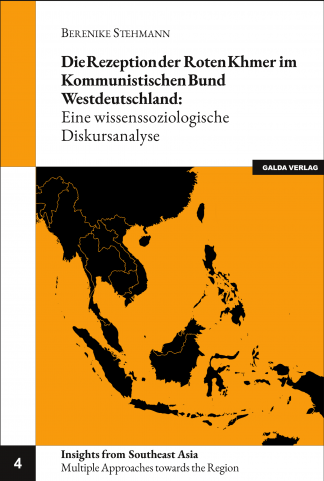Description
In diesem Buch geht es um den Kommunistischen Bund Westdeutschland (KBW), eine marxistisch-leninistische Gruppe, die von 1973 bis 1984 bestand, und ihre Sicht auf die Roten Khmer.
Es wird analysiert, wie der KBW seine eigene „Wahrheit“ von dem erschuf, was im Kambodscha der Roten Khmer von 1975-79 passierte. Für den KBW waren die Berichte über die schweren Menschenrechtsverletzungen, die aus dem abgeschotteten Kambodscha nach außen drangen, Lügen sei-ner politischen Gegner. Die Roten Khmer verehrten sie als Vorbilder.
Um zu verstehen, wie es dazu kommen konnte, wurden mithilfe der wissenssoziologischen Dis18kursanalyse 233 Artikel aus den beiden Parteizeitungen des KBW ausgewertet und in ihren historischen und politischen Kontext eingeordnet.
SYNOPSIS IN ENGLISH
This book explores how the Communist League of Western Germany (Kommunistischer Bund Westdeutschland, or the KBW), a Marxist-Leninist party that existed from 1973 until 1984, constructed the Khmer Rouge as honorable role models. The analysis is based on a sociology of knowledge approach to discourse.
ABOUT THE SERIES
Developments in the field of area studies — goaded by the analytical deconstruction of world regions from their geopolitical sense — have deeply affected the knowledge production from societies and cultures located in the politicized compartmentalization of the globe. With this series, the editors and authors wish to contribute to a reformulation of sensibilities in area studies which emphasizes the epistemic value of contextualized knowledge production. Starting with the notion of Southeast Asia, books published in this series will contribute to a more nuanced understanding of regionality based on a multidisciplinary approach. The series represents an outlet for young scholars intending to publish their degree theses; and for established scholars who are looking for a place to republish out-of-print books. We also encourage scholarly collectives from the regions to publish collaborative works or edited volumes on topics that usually will not attract the attention of big presses due to their transdisciplinary orientation.
EDITORIAL BOARD
Prof. Vincent Houben
Prof. Boike Rehbein
Prof. Barend Terwiel
Dr. Benjamin Baumann
Dr. Daniel Bultmann


